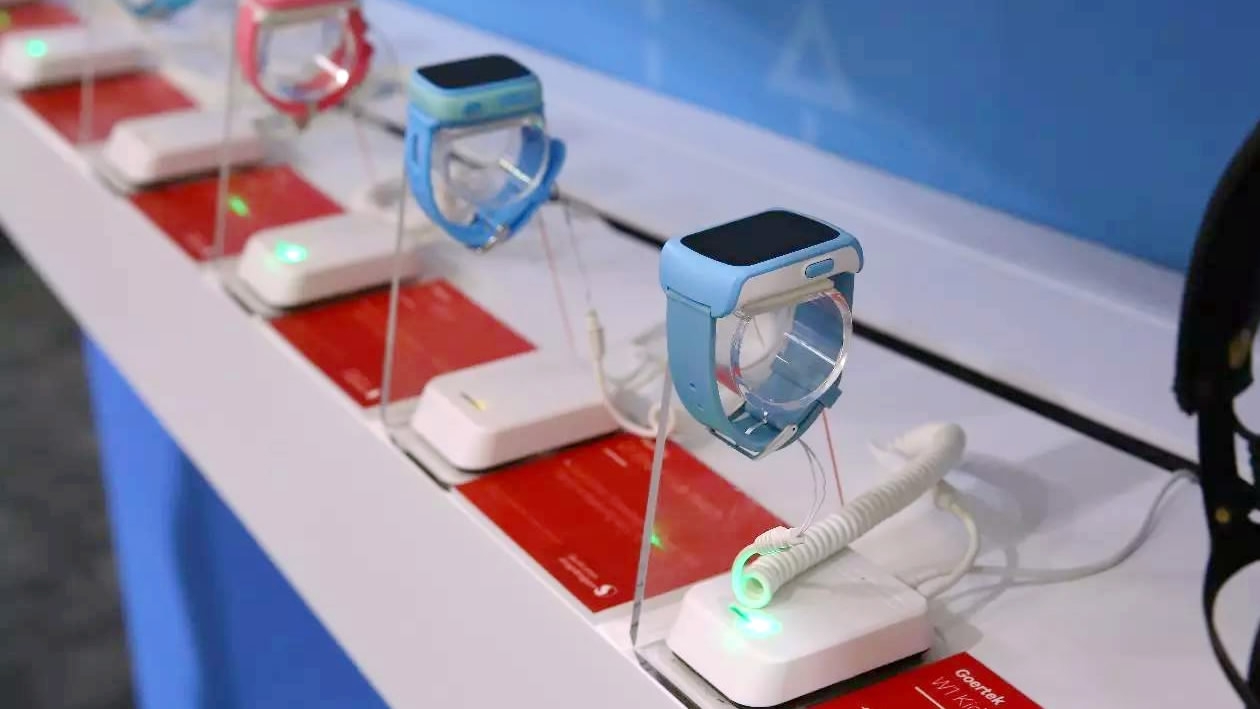
Tech & Sci
22:53, 27-Nov-2017
Monitoring devices may not be the best solution to prevent child abuse
By Fan Yixin

Some people in China are turning to children’s smartwatches and monitoring cameras in the hope of protecting their kids from danger after a recent child abuse incident broke out in a kindergarten, Beijing.
Suspects involved in the child abuse scandal of RYB Education New World kindergarten were detained by local police on Saturday. China’s Xinhua News Agency wrote that preschoolers attending the kindergarten “were reportedly sexually molested, pierced by needles and given unidentified pills” without giving details.
The incident sparked indignation on China’s social media platforms. While pressing authorities to take actions, many suggest parents equip their children with monitoring devices at school such as smartwatches.

On November 22, several parents reported to the police that their children attending RYB Education New World kindergarten in Beijing's Chaoyang District were pierced by needles and given unidentified pills. /Xinhua Photo
On November 22, several parents reported to the police that their children attending RYB Education New World kindergarten in Beijing's Chaoyang District were pierced by needles and given unidentified pills. /Xinhua Photo
Wang Qin, 29, a resident of north China’s Shanxi Province, whose child is going to kindergarten after the New Year, told CGTN that she would let her child wear a monitoring device if given the chance. She said many kindergartens nowadays have also installed monitoring cameras which allow parents to watch their kids through an app installed on their smartphones. Some kindergartens require extra fees to install the cameras which usually costs under 50 yuan a month.
“Incidents like this make parents angry,” said Wang. “I will feel relieved to be able to watch my kid play, eat and sleep [in the kindergarten].”
But such apps and devices can't put the hearts of cybersecurity experts to rest.
Earlier this month, Germany’s Telecoms regulator Federal Network Agency banned the sales of all children’s smartwatches and told parents to “destroy” the ones already owned by their children. Most of these watches, similar to the ones sold in China, are equipped with SIM cards and can be controlled by mobile apps.
Li Tiejun, a security expert from Cheetah Mobile, told CGTN that he was not surprised by Germany’s decision.
Many children’s smartphone manufacturers are focusing only on the hardware, according to Li, and are not much experienced in cyber security which is something "they should strengthen." The watches’ servers storing and transmitting the data can be poorly designed and have flaws which expose what can be seen by the parents also seen by the hackers. Monitoring cameras have the similar safety problems.
Li said wearing the smartwatches is “not a good solution” to prevent children from getting hurt and may expose parents’ information too as the watches are also used at home.
“Incidents like this require solutions from the social administration. Wearing a smartwatch will not stop child abuse,” said Li.
Working in a micro-managed environment is not a good choice for some teachers either.
On China’s Sina Weibo, some kindergarten teachers shared their experience working with the monitoring devices. Many said they felt their privacy was “exposed” and were consistently receiving calls from parents telling them to help the children.
When asked about if she worries that her toddler’s privacy would be violated, Wang shared that on the day she gave birth, she received a sales call from a photo studio regarding her child's portrait photography at the baby shower.
“The personal information of kids nowadays, to be frank, is given away the moment they were born,” said Wang.
(CGTN's Han Jie and Gong Zhe also contributed to the story.)

SITEMAP
Copyright © 2018 CGTN. Beijing ICP prepared NO.16065310-3
Copyright © 2018 CGTN. Beijing ICP prepared NO.16065310-3